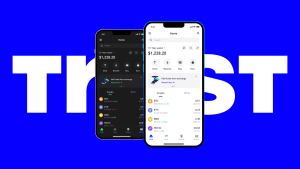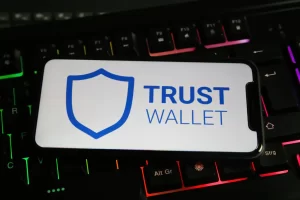Can Trust Wallet be tracked?
Trust Wallet itself is private and does not track users. However, transactions made on public blockchains can be traced by anyone with the wallet address. While Trust Wallet ensures privacy, the blockchain’s transparency allows for tracking transaction history.
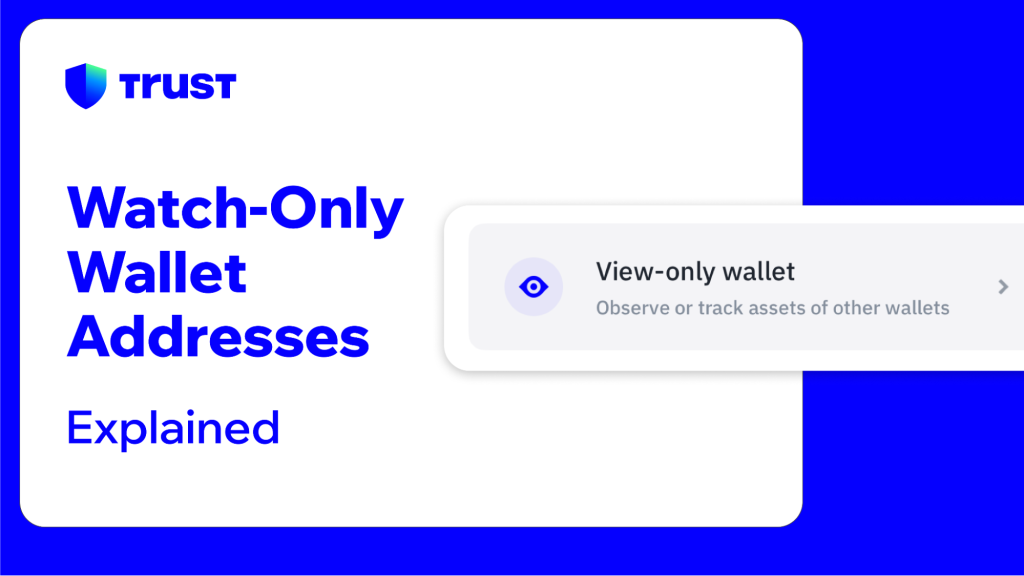
How Trust Wallet Works with Blockchain Transparency
Can Transactions in Trust Wallet Be Tracked on Public Blockchains?
-
Blockchain Transparency: Trust Wallet itself does not track users or transactions, but all transactions made with it are stored on the public blockchain. This means anyone can access transaction details using the wallet address, making it possible to trace the movement of funds.
-
Blockchain Explorers: Every blockchain (such as Ethereum or Binance Smart Chain) has explorers that allow users to view transaction histories. By entering a wallet address, anyone can see the amount transferred, the sender and receiver addresses, and the transaction timestamps, which means transactions in Trust Wallet can be traced through these explorers.
-
Public Ledger: Since most cryptocurrencies use public ledgers, each transaction, whether initiated through Trust Wallet or another wallet, is permanently recorded. This public availability allows for traceability but does not disclose the identity of the wallet holder unless additional personal data is linked.
The Role of Wallet Addresses in Tracking Trust Wallet Transactions
-
Wallet Address Visibility: Trust Wallet generates a unique public address for each cryptocurrency. These addresses are used to send and receive assets and are visible to anyone on the respective blockchain network, making it possible to track the flow of funds between wallets.
-
Traceability of Transactions: If a wallet address is linked to a known entity (e.g., through exchanges or public disclosures), transactions can be traced back to the individual or entity. However, without this additional information, the address alone remains anonymous, even if the transaction itself is transparent.
-
Potential for Privacy Loss: While Trust Wallet ensures user privacy, the public nature of blockchain means that wallet addresses can be linked to personal identities through certain methods, such as exchanges that require KYC (Know Your Customer) verification. If you use your wallet address on such platforms, your transactions could be traced back to you.
Privacy Features of Trust Wallet
How Does Trust Wallet Ensure User Privacy?
-
No Personal Data Collection: Trust Wallet does not require any personal information to create or use the wallet. Users can create a wallet without providing names, email addresses, or other identifying details, ensuring a high level of privacy.
-
Non-Custodial Nature: Trust Wallet is a non-custodial wallet, meaning that users control their private keys and funds. This reduces the risk of third-party entities accessing your wallet or transaction data, enhancing privacy.
-
End-to-End Encryption: The app uses advanced encryption techniques to protect the private keys and backup phrases stored on your device. This ensures that even if your device is compromised, your wallet’s security and privacy are maintained.
Are Trust Wallet Transactions Anonymous?
-
Blockchain Transparency: While Trust Wallet itself ensures privacy, the transactions made on public blockchains are not anonymous. The blockchain records every transaction, including wallet addresses, amounts, and timestamps. Anyone with access to the wallet address can track the movement of funds.
-
Pseudonymous Transactions: Trust Wallet transactions are pseudonymous rather than anonymous. This means that while your identity is not directly tied to your wallet address, the wallet address itself is visible to anyone who knows it, which could allow for the tracing of transactions.
-
Linking Wallets to Identities: If your Trust Wallet address is used on platforms requiring KYC (Know Your Customer) verification, such as exchanges, your wallet activity can potentially be linked to your real-world identity. Therefore, while Trust Wallet offers a high degree of privacy, the level of anonymity depends on how you use your wallet across various platforms.
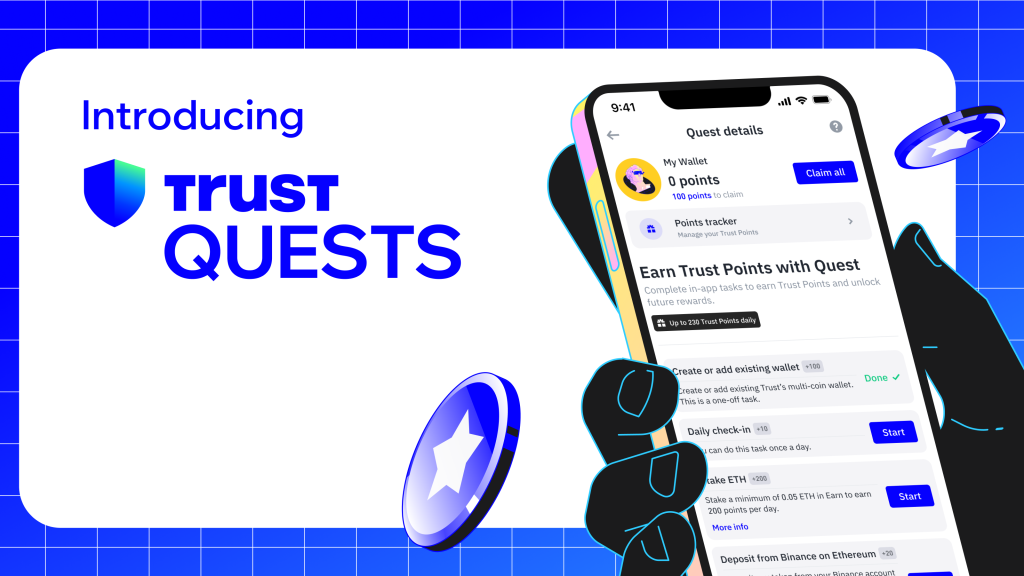
Tracking Crypto Transactions in Trust Wallet
How to Check Transaction History on Trust Wallet
-
Built-in Transaction History: Trust Wallet provides a transaction history feature that allows you to view all past transactions made from your wallet. You can access this by opening the app, selecting the specific cryptocurrency, and viewing its transaction history for details like amounts, sender/receiver addresses, and transaction statuses.
-
Filters and Sorting: The wallet allows you to filter and sort transactions based on different parameters, such as date or transaction type. This makes it easier to find specific transfers, track pending transactions, or review past activity for particular tokens or coins.
-
Transaction Details: Each entry in the transaction history displays key details such as the transaction ID (TXID), network confirmation status, transaction fee, and date/time of the transfer. This helps you track your funds and confirm successful transfers directly from the app.
Using Blockchain Explorers to Trace Trust Wallet Transactions
-
Public Blockchain Records: Since Trust Wallet transactions are recorded on public blockchains, you can trace them using blockchain explorers. By searching the transaction ID or wallet address, you can view the entire history of transactions, including details like the total amount transferred and the block confirmations.
-
Accessing Transaction Data: Blockchain explorers, such as Etherscan (for Ethereum) or BscScan (for Binance Smart Chain), let you access detailed data about each transaction, including timestamps, gas fees, and involved addresses. These tools are vital for verifying transactions and monitoring the movement of funds from your Trust Wallet.
-
Address Tracking: If you want to monitor specific wallet addresses, you can input the address into a blockchain explorer. This lets you track every transaction associated with that address, helping you keep tabs on the transfers made to and from your Trust Wallet.
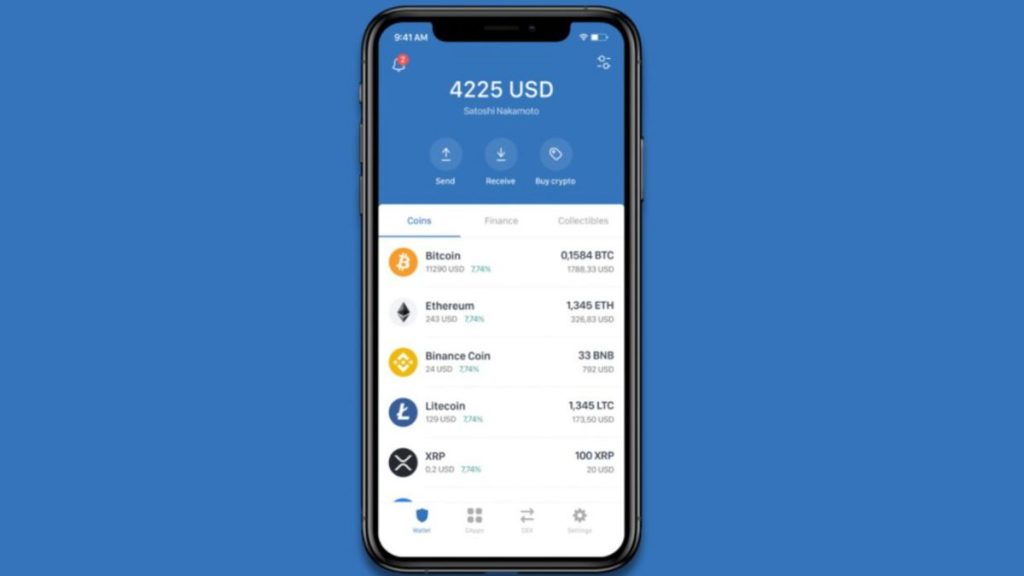
Can Trust Wallet Transactions Be Identified?
The Impact of Public Blockchain on Trust Wallet Privacy
-
Transparency of Public Blockchains: Trust Wallet transactions are recorded on public blockchains like Ethereum, Binance Smart Chain, and others. While the wallet itself doesn’t reveal personal information, the transaction details such as wallet addresses, transaction amounts, and timestamps are visible to anyone with access to a blockchain explorer.
-
No Built-In Anonymity: Trust Wallet itself does not provide full anonymity. Although it allows users to store cryptocurrencies without providing personal information, blockchain transactions are inherently transparent. Anyone who knows the wallet address can trace its activity, which might compromise privacy.
-
Linked to Other Identifiers: If you use a Trust Wallet address on a platform that requires KYC (Know Your Customer) verification, such as exchanges, your wallet activity can potentially be linked to your identity. This adds a layer of traceability to otherwise anonymous transactions.
How Do Blockchain Explorers Identify Trust Wallet Addresses?
-
Publicly Visible Addresses: When you initiate a transaction from Trust Wallet, the wallet address is visible on the blockchain. Blockchain explorers like Etherscan for Ethereum or BscScan for Binance Smart Chain can track any transaction involving that address, showing how funds are sent or received.
-
Transaction Details: Blockchain explorers can identify and display transaction details, such as amounts, sending and receiving addresses, and network confirmation status. This helps anyone trace the movement of assets between wallets, even if those wallets are Trust Wallet addresses.
-
Address Clustering: Blockchain explorers often use algorithms to cluster related addresses, which can sometimes help identify wallet owners based on patterns of transaction behavior. If multiple addresses are frequently interacting, they may be linked together, revealing more about wallet usage and potentially identifying the owner.
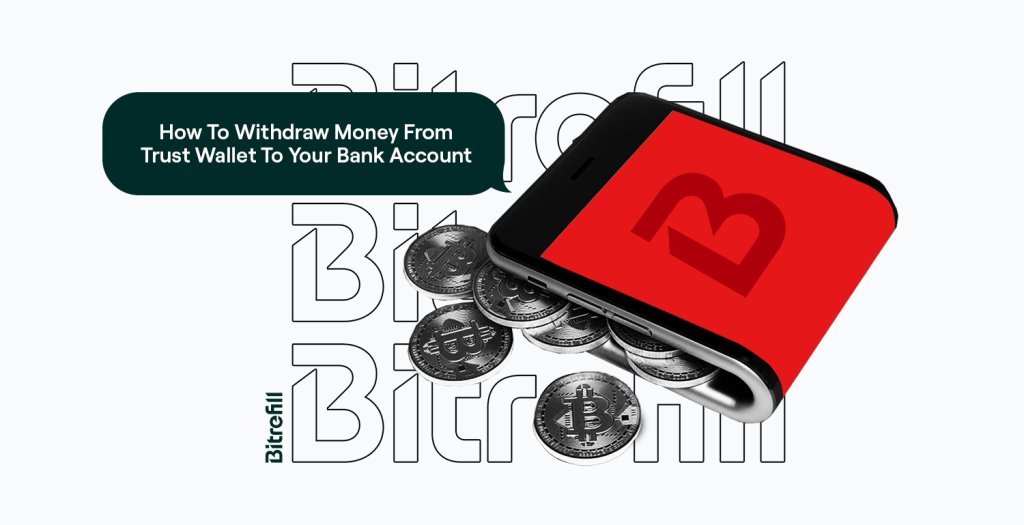
Protecting Your Privacy on Trust Wallet
Steps to Enhance Privacy While Using Trust Wallet
-
Use New Addresses for Each Transaction: To enhance privacy, it’s advisable to use a new wallet address for each transaction. Trust Wallet allows you to generate multiple addresses for the same cryptocurrency. This prevents others from associating all your transactions with a single address.
-
Avoid Using KYC Platforms: Try not to use Trust Wallet addresses on platforms that require Know Your Customer (KYC) verification, like exchanges. These platforms can link your wallet to your real-world identity, compromising your privacy. If possible, use decentralized exchanges or non-KYC services.
-
Utilize Privacy Coins: If privacy is a top concern, consider using privacy-focused cryptocurrencies like Monero (XMR) or Zcash (ZEC). These coins are designed to keep transactions anonymous and shield the details from public view, further enhancing your privacy on Trust Wallet.
How to Minimize Tracking Risks in Trust Wallet
-
Regularly Change Wallet Addresses: To minimize the risks of transaction tracking, it’s a good practice to change your wallet address regularly. By using a fresh address each time, you limit the ability of blockchain explorers or third parties to link all transactions back to you.
-
Disable IP Address Sharing: While Trust Wallet itself doesn’t track IP addresses, if you’re using the wallet in combination with third-party platforms or apps, ensure that your IP address is not shared or logged. Use VPNs or privacy-focused networks to prevent your IP from being linked to your Trust Wallet activities.
-
Be Mindful of Publicly Sharing Addresses: Avoid publicly sharing your Trust Wallet address unless absolutely necessary. Sharing your address in online forums, social media, or any public space can expose your transactions to tracking by others who might be able to link them to your identity.

